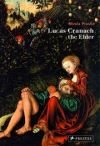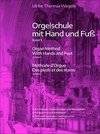
-
 Anglický jazyk
Anglický jazyk
Burials in Hungary
Autor: Source: Wikipedia
Source: Wikipedia. Pages: 49. Chapters: Burials at Saint Adalbert's Primatial Basilica, Esztergom, Burials at Székesfehérvár Cathedral, Burials in the Palatinal Crypt, Budapest, Béla Bartók, Louis I of Hungary, Stephen I of Hungary, Albert II of Germany,... Viac o knihe
Na objednávku, dodanie 2-4 týždne
16.54 €
bežná cena: 18.80 €
O knihe
Source: Wikipedia. Pages: 49. Chapters: Burials at Saint Adalbert's Primatial Basilica, Esztergom, Burials at Székesfehérvár Cathedral, Burials in the Palatinal Crypt, Budapest, Béla Bartók, Louis I of Hungary, Stephen I of Hungary, Albert II of Germany, Charles I of Hungary, Louis II of Hungary, Tamás Bakócz, Matthias Corvinus, Coloman, King of Hungary, Elizabeth of Luxembourg, John Zápolya, József Mindszenty, Géza II of Hungary, Vladislas II of Hungary, Vladislaus II of Bohemia and Hungary, Grand Duchess Alexandra Pavlovna of Russia, Archduke Joseph, Palatine of Hungary, Anne of Foix-Candale, Béla II of Hungary, Ladislaus II of Hungary, Stephen IV of Hungary, Princess Clotilde of Saxe-Coburg and Gotha, Duchess Maria Dorothea of Württemberg, Archduke Stephen, Palatine of Hungary, Ladislaus III of Hungary, János Csernoch, Princess Hermine of Anhalt-Bernburg-Schaumburg-Hoym, Archduke Joseph Karl of Austria, Helena of Rascia, Agnes of Antioch, Jusztinián György Serédi, Marko Krizin, Archduke Karl of Austria-Este, Kolos Ferenc Vaszary, László Lékai, Felicia of Sicily. Excerpt: Béla Viktor János Bartók ( ; Hungarian pronunciation: ; March 25, 1881 - September 26, 1945) was a Hungarian composer and pianist. He is considered one of the most important composers of the 20th century and is regarded, along with Liszt, as Hungary's greatest composer (Gillies 2001). Through his collection and analytical study of folk music, he was one of the founders of ethnomusicology. Béla Bartók was born in the small Banatian town of Nagyszentmiklós in the Kingdom of Hungary, Austria-Hungary (since 1920 Sânnicolau Mare, Romania) on March 25, 1881. Bartók's family reflected some of the ethno-cultural diversities of the country. His mother, Paula (née Voit), had German as mother tongue, but was ethnically of "mixed Hungarian" origin: Her maiden name Voit is German, probably of Saxon origin from Upper Hungary (Since 1920 in Czechoslovakia, since 1993 in Slovakia), though she spoke Hungarian fluently. Among her closest forefathers there were family names like Polereczky (Magyarized Polish) and Fegyveres (Magyar). His father, Béla Sr., considered himself thoroughly Hungarian, because on his father's side the Bartók family was a Hungarian lower noble family, originated from Borsod county (Bónis n.d.,; Bartók 1981, 13), though his mother was from a Roman Catholic Serbian family (Bayley 2001, 16). Béla displayed notable musical talent very early in life: according to his mother, he could distinguish between different dance rhythms that she played on the piano before he learned to speak in complete sentences (Gillies 1990, 6). By the age of four, he was able to play 40 pieces on the piano; his mother began formally teaching him the next year. Béla was a small and sickly child and suffered from severe eczema until the age of five (Gillies 1990, 5). In 1888, when he was seven, his father (the director of an agricultural school) died suddenly. Béla's mother then took him and his sister, Erzsebet, to live in Nagyszolos (today Vinogradiv, Ukraine) and then to Pozsony (German
- Vydavateľstvo: Books LLC, Reference Series
- Rok vydania: 2011
- Formát: Paperback
- Rozmer: 246 x 189 mm
- Jazyk: Anglický jazyk
- ISBN: 9781155976334







 Ruský jazyk
Ruský jazyk 



 Nemecký jazyk
Nemecký jazyk 
